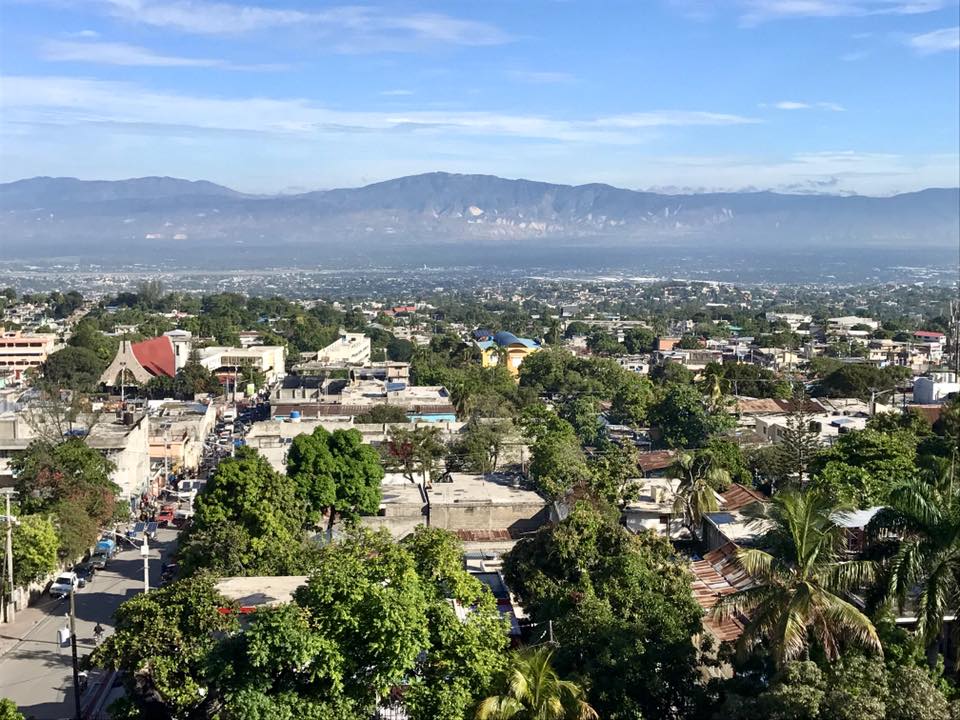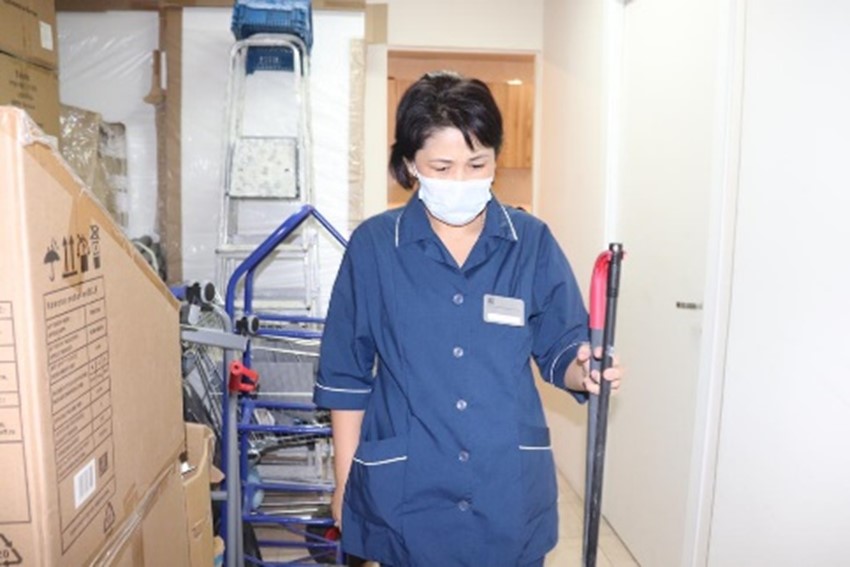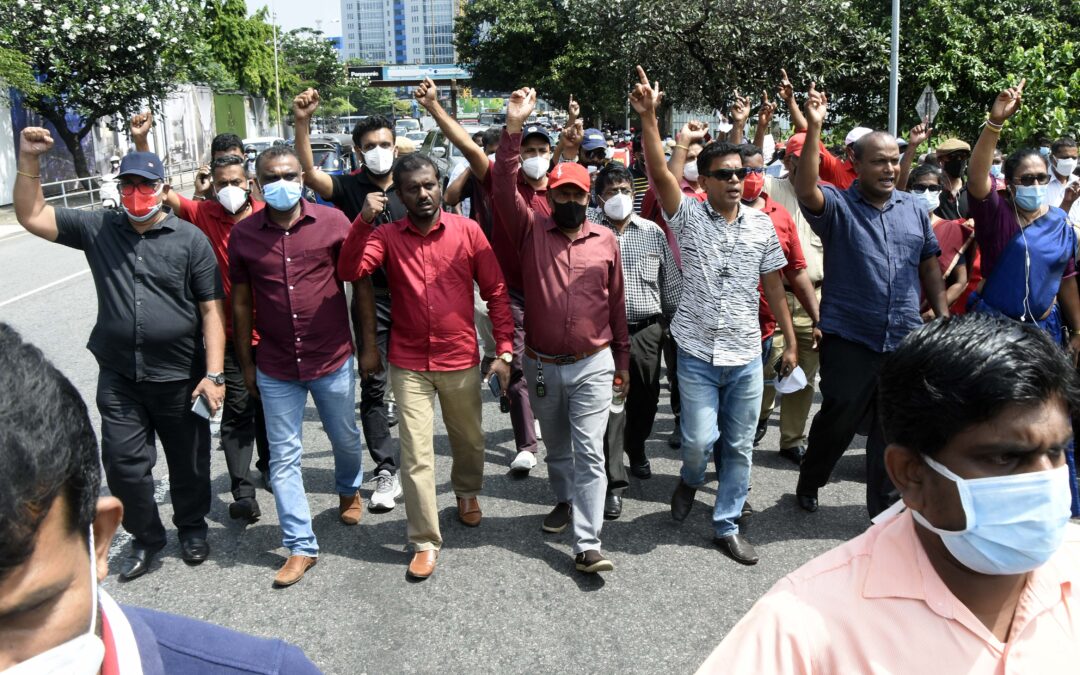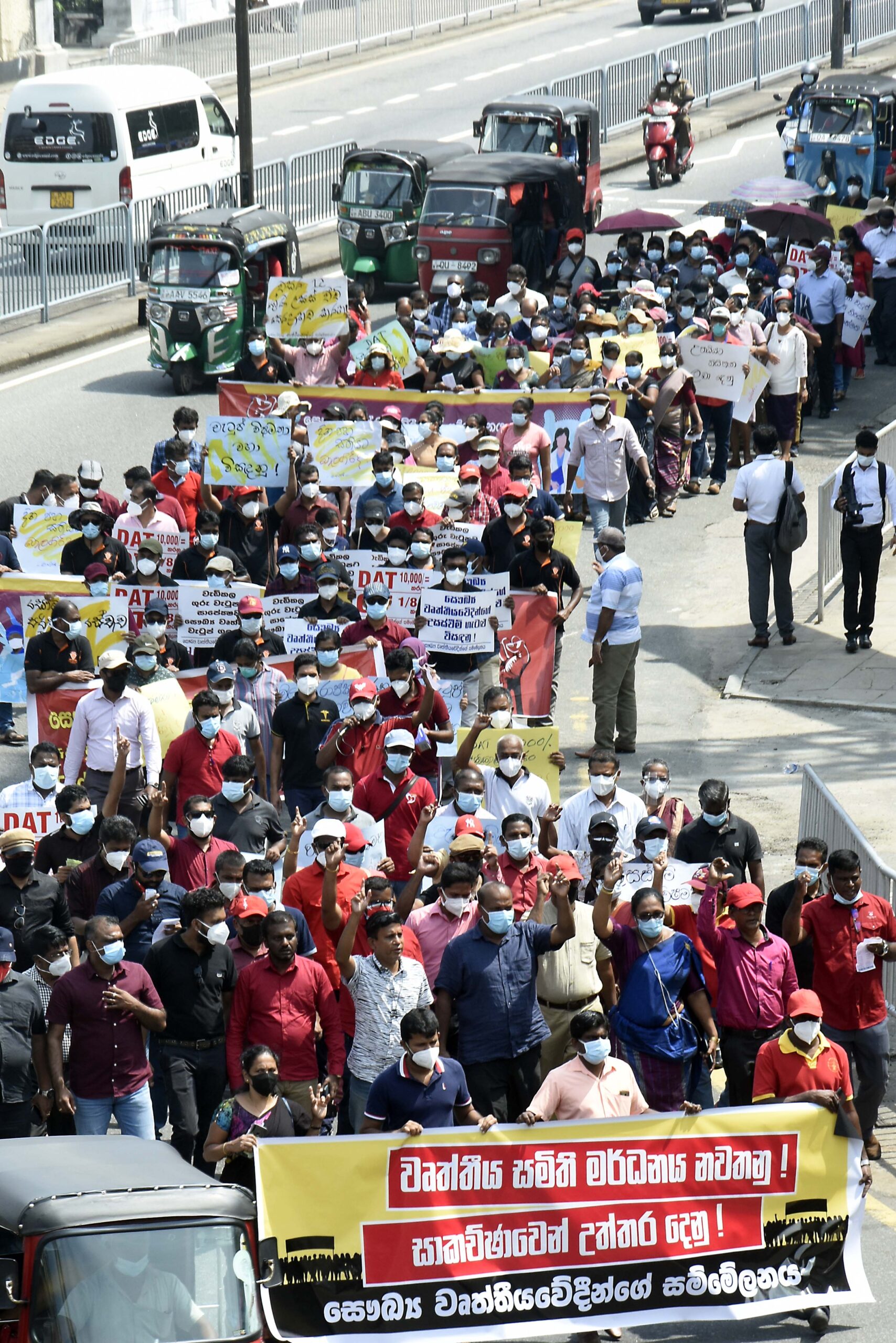
Mar 3, 2022
Thousands of workers in Mexico recently formed an independent union at a GM auto plant in Silao, in central Mexico, voting out a corporate-supported union that did not operate in their interest. On the latest episode of The Solidarity Center Podcast, Maria Alejandra Morales Reynoso, general secretary of SINTTIA, the union that now represents the workers, tells why this victory is a milestone for many Mexican workers who are forced to be part of sham unions. (En español)
Morales shares how workers at the Silao plant stood strong in the face of widespread corruption, laws tilted against them and incredible pressure to cast their vote for a protection union that did the bidding of the company.
The union victory “gave people hope, hope that it was possible to represent workers freely,” she says. “We proved it’s possible to get organized and to fight for our rights and to leave behind the fear that we’re going to lose our jobs.”
“It takes courage to take on an entire, entrenched, corrupt system. Yet the workers in Silao did just that, inspiring workers all over the world,” says Podcast host and Solidarity Center Executive Director Shawna Bader-Blau.
“And they did so at one of the biggest companies in Mexico, with more than 6,000 workers. This is living proof that worker power and global solidarity is a powerful voice and force for democracy and worker and human rights. When workers come together, we cannot be stopped.”
Catch More Solidarity Center Podcast Episodes!
Listen to this all Solidarity Center episodes here or at Spotify, Amazon, Stitcher, Castbox or wherever you subscribe to your favorite podcasts.
Download recent episodes:
The Solidarity Center Podcast, “Billions of Us, One Just Future,” highlights conversations with workers (and other smart people) worldwide shaping the workplace for the better.

Mar 2, 2022
In Nigeria—where 93 percent of working people toil in the informal economy for low wages, unprotected by labor law and without social services such as pensions and healthcare—app-based workers are fighting for their rights.
With Solidarity Center support, today the Federation of Informal Workers of Nigeria (FIWON), the National Union of Professional APP-Based Transport Workers (NUPA-BW) and the Professional E-Hailing Drivers and Private Owners of Nigeria (PEDPA) launched a joint campaign for formal recognition and adequate representation for all, regardless of classification.
“A worker is a worker,” says Solidarity Center Nigeria Country Program Director Sonny Ogbuehi. “And all working people have the right to join together to secure the decent jobs and fair wages they deserve.”
During the early part of the pandemic, employment in Nigeria plummeted. Although employment has since rebounded, most newly created jobs are precarious and the cost of living has skyrocketed. Many young people, including those who graduated university into the pandemic, are now employed in the gig economy or other informal-sector jobs because no formal-sector work is available.
Following a Supreme Court decision in the United Kingdom classifying Uber drivers as workers rather than independent contractors, NUPA-BW drivers in May last year announced a class action suit against two international app-based ridesharing companies for compensation of unpaid overtime and holiday pay, pensions, social security, as well as union recognition. A month prior, drivers in Lagos embarked on a strike for an immediate increase in fares to compensate for the cost of goods and services that, PEDPA said, had increased by more than 200 percent without a commensurate fare increase.
“We want [ride-share companies] to respect the Nigerian constitution and labor law,” says NUPA-BW President Ayoade Ibrahim.
The joint campaign’s demands include full worker and union rights; provision of social protection programs, including pensions, adequate and affordable healthcare, and disability care; provision by the employer of basic workplace infrastructure such as electricity, water and toilets; improved safety and security measures; and worker input into pricing.
The campaign will:
- Support a new NUPA-BW case at the national industrial court for classification of app-based drivers as workers
- Produce a weekly call-in radio program to educate the public about the challenges faced by workers employed by app-based companies and other informal-sector workers
- Facilitate platform workers efforts to organize and support their efforts to advocate for their rights with government and policy makers, employers and within the public domain.
Some 2 billion people work in the informal sector globally, as domestic workers, taxi drivers and street vendors, many of them women. This number has only increased during the COVID-19 pandemic. Informal-economy work now comprises most jobs in many countries and is increasing worldwide. Although informal-economy workers can create up to half of a country’s gross national product, most have no access to health care, sick leave or support when they lose their jobs, and they have little power to advocate for living wages and safe and secure work. The Solidarity Center is part of a broad-based movement in dozens of countries to help workers in the informal economy come together to assert their rights and raise living standards.

Feb 28, 2022
Violence broke out on Wednesday, February 23, as Haitian police opened fire on garment workers demonstrating for higher wages and killed a reporter, according to witness reports. Two other reporters were injured at the scene in Port-au-Prince.
Maxihen Lazzare, who worked for Haitian media group Roi des Infors, died of his wounds at a hospital on Wednesday. Haitian police responded to Lazzare’s death in a press release saying they are launching an investigation and that the police are implicated.
The union coalition released a statement denouncing Wednesday’s violence and condemning “the kind of conspiracy of the police and employers to block the mobilization to force us to accept a minimum wage that cannot meet our needs so that they can continue to suck blood and exploit workers.”
Protests have been ongoing since Haitian workers staged a peaceful demonstration calling for an increase in the minimum wage earlier this month. In January, a coalition of nine trade unions issued an open letter to the prime minister seeking a minimum wage increase from 500 gourdes (about $4.82 a day) to 1,500 gourdes ($14.62). They noted that wages have been stagnant for years while the increasingly high cost of living and rising inflation were eroding workers’ ability to live with dignity.
In response to garment worker demands, the government mandated a new minimum wage earlier this week, bumping pay to about $6.53 a day.
In 2019, the Solidarity Center conducted a wage assessment, with Haitian workers and their unions, and found that garment worker wages then covered less than a quarter of the estimated cost of living.
Unions around the world are pushing back against anti-union violence. Earlier this month labor leaders from several countries stood against anti-union violence in Mexico.

Feb 24, 2022
A study conducted by Insan-Leilek, a Kyrgyz migrant worker foundation, and the Trade Union of Migrants of the Kyrgyz Republic documents abuses suffered by many who migrate to Russia to earn their livelihoods as nannies, adult caregivers, cooks, cleaners and live-in domestic workers. An estimated 750,000 Kyrgyz people have migrated to Russia for work; official Kyrgyz government data estimates that half that number are women.
“We are invisible people,” says 34-year-old survey respondent and domestic worker Almagul. (Her last name is withheld to protect her livelihood and personal safety.)
“The Problems of Informal Domestic Workers,” reflects the experiences of 300 Kyrgyz migrant domestic workers, from whom 24 were selected for in-depth interviews by two migrant worker experts. Respondents’ jobs were in the Russian cities of Kazan, Moscow, Novosibirsk, Samara and Yekaterinburg.
The study reveals a wide range of employment abuses among the mostly female domestic workers who were surveyed, including sexual harassment and violence, other forms of physical and emotional abuse, unpaid hours, excessive workloads, denial of time off and wage theft.
More than 80 percent of the female survey participants who provided in-depth interviews reported sexual harassment at the hands of their employers. Of this group, almost 4 percent had experienced severe sexual violence, including rape, while 25 percent were subjected to indecent touching that included unwanted touching of intimate body parts. More than 30 percent of those reporting sexual harassment and violence said they could not ask anyone for help or support and, of this number, 7 percent attempted suicide. More than 70 percent of those providing in-depth interviews said they were often beaten, allegedly for laziness, and that they can rarely go out.
Two survey participants reported having become surrogate mothers for their employers without a written agreement or fair compensation.
Almost 90 percent of the larger group surveyed (300 respondents) were working without a formal contract because they had secured their jobs through personal connections. Such workers are vulnerable to unregulated work in which hours, pay, duties and conditions are determined at the whim of the employer, some of whom are unscrupulous and exploitive.
“I worked 24 hours a day, and I looked after the children, cooked, did the laundry. Weekends were out of the question,” reports Miraida about a job she held in Russia when she was 18.
Kyrgyz domestic workers in Russia provide an average of 10 hours of work per day, a survey of the larger group of 300 found. Of these, those who live in an employers’ home are working an average of more than 12 hours per day. More than 40 percent said they perform additional services that were not agreed with the employer at the time of hiring, without adjusted compensation.
Respondents were recruited for the survey through Trade Union of Migrants of the Kyrgyz Republic WhatsApp groups and Insan-Leilek diaspora organizations and migrant communities. In-depth interviews were conducted online and over the phone.
Russia is the main destination for approximately 750,000 of Kyrgyzstan’s labor migrants. Official data on the percentage of migrant women employed in domestic work in Russia does not exist.
Insan-Leilek foundation and the Trade Union of Migrants of the Kyrgyz Republic are actively engaged in anti-trafficking programs in Kyrgyzstan, with Solidarity Center support, including last year’s “100 Days Against Trafficking in Persons” youth campaign.

Feb 17, 2022
Health professionals in Sri Lanka took to the streets of Colombo this week to protest a recent presidential decree that public health and electricity provision are essential services, effectively banning all workers in those sectors from striking.
 The Federation of Health Professionals (FHP) staged its protest in front of President Gotabaya Rajapakse’s office. The protest comes after three months of island-wide strike action by the Government Nursing Officers’ Association (GNOA), which demanded a resolution of salary anomalies, among other issues.
The Federation of Health Professionals (FHP) staged its protest in front of President Gotabaya Rajapakse’s office. The protest comes after three months of island-wide strike action by the Government Nursing Officers’ Association (GNOA), which demanded a resolution of salary anomalies, among other issues.
The president’s late-Friday decree, or gazette, came on the heels of protests on February 7 and 8.
Following a meeting with the health minister, the FHP said it would suspend further trade union action for two weeks until its demands were met. The minister committed to issuing a cabinet paper on February 21 to resolve salary issues.
GNOA suspended further actions after the issuing of the gazette.

Feb 16, 2022
Following Haitian unions’ open letter to the prime minister demanding an increase in the minimum wage, factory workers in the nation’s capital staged a peaceful protest outside the SONAPI industrial park in Port-au-Prince on February 9 and 10.
Videos and photos posted on Twitter showed large crowds pouring into the Metropolitan Industrial Park in the Port-au-Prince community of Delmas. Demonstrators danced to music and held up tree branches, a popular symbol of uprooting or change.
Police fired tear gas, injuring more than a dozen workers, most of them women. The industrial park—which is home to 16 manufacturers, including garment and electronic factories, and employs at least 12,000 workers—was shut down on Thursday as the demonstration continued. Central union confederations (Confederation of Haitian Workers (CTH), Confederation of Workers in the Public and Private Sectors (CTSP), National Central of Haitian Workers (CNOHA) and EntèSendikal Premye Me-Batay Ouvriye (ESPM-BO)) denounced the actions of Intervention and Law Enforcement Corps (CIMO) against peaceful protesters, calling it [English translation] “torture and other cruel, inhuman and degrading treatment.”
Workers at factories producing textiles and other goods make just $4.82 (500 gourdes) per day for eight hours of work and are demanding an increase to $15 (1,500 gourdes) per day. Three years have passed since the wage has increased. Their demands come as a sharp rise in inflation has increased the cost of basic goods and services such as transportation, health care, and education to as much as three times the current minimum wage.
In 2019, the Solidarity Center conducted a wage assessment, with Haitian workers and their unions, and found that garment worker wages then covered less than a quarter of the estimated cost of living.
Workers are continuing peaceful demonstrations until their demands are met.






 The Federation of Health Professionals (FHP) staged its
The Federation of Health Professionals (FHP) staged its